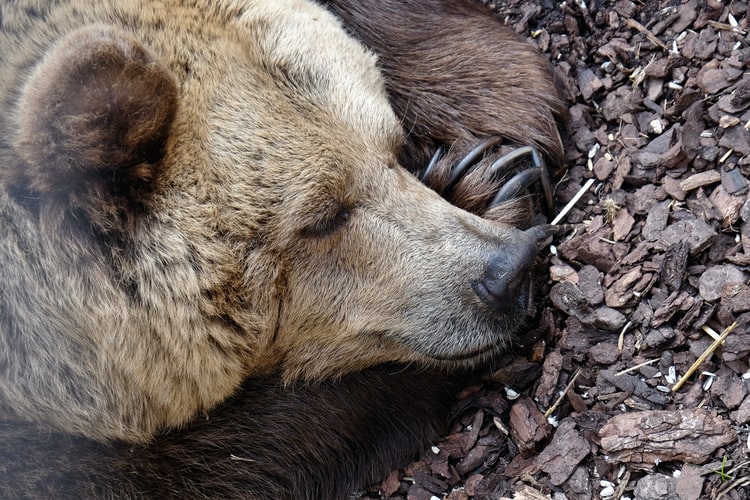Here I have fictionalized Acts 14:6-15 from the point of view of Erastus, a local potter. Please note that in Latin, Zeus is Jupiter, and Hermès is Mercury. I have adopted their Greek names here.
In the city of Lystra, bleary-eyed merchants began setting up their wares on sagging market stalls.
Erastus felt the chill breeze of winter’s breath. It would be many hours before the midday sun would make selling his pottery tolerable.
He would’ve preferred to labour against the fires of the kiln this morning, but only a fool would keep on producing pots without selling them.
A smile crept across his face as he thought on his wife, at home with her swollen belly. Come springtime, they would welcome another child into their fold. A girl perhaps? One as beautiful as her mother, he hoped.
Erastus removed the woollen cloak off his shoulders and placed it on his six-year-old son. He studied Diogenes, the pride of his life, marvelling at how quickly he had grown.
He held a small copper coin directly in front of his son’s face.
“Take this coin and be sure to place it in Barak’s hands.”
“Yes, Papa.” Diogenes nodded, snatching the coin away before scampering off to the place where Barak the cripple always sat, begging in a shaded corner of the marketplace.
Erastus trained his eye on Diogenes, ducking and weaving through the people seamlessly, watching him run the length of ten market stalls, and bowing to greet Barak.

Poor old Barak. Born a cripple on both legs. What misdeeds had his parents done to incur the wrath of the gods in such a cruel way?
Diogenes flashed all his teeth at Erastus on his return, bounding happily in the cloak too big for his boyish frame. Erastus planted his son on the stool beside him, ruffling his thick black hair.
While straightening the rows of vases, amphorae, ceramic bowls and cups, Erastus inclined his ear to the philosophers spouting their speeches in the forum. It passed the time when trading was slow.
“Papa, who is that little bald man?” Diogenes pointed at the scruffy, short speaker with the biggest voice. Beside him stood a hulking fellow with a distinguished air about him.
Erastus shrugged. “He’s someone new, son. I haven’t seen him in these parts before.”
Erastus observed the crowd growing. The little bald man’s features were sharp and plain. He dressed as a common Jew, but spoke in fluent Greek.
Diogenes ears started burning as he listened to this man speak of an Almighty One who raised Christ from the dead.
The bald man’s voice stilled. His eyes searched the audience, stopping only when they locked onto Barak’s face.
The bald man’s voice boomed, “Get up, stand up straight on your feet.”
Suddenly, Barak the cripple sprang to his feet, leaping on legs as spindly as twigs. He paced back and forth for all to see.
The crowd roared.
Diogenes clapped with glee. “Papa, Papa. Did you see? Barak can run as good as me!”
Both father and son fell out of their seats and rushed out towards the crowd.
“Let’s hope our eyes are not playing tricks on us, eh?” Erastus said, as he thrust his son high upon his shoulders. Vera would never forgive him, if Diogenes were lost in the madness of this horde.
In their excitement, the townspeople reverted to speaking in their native tongue—Lycaonian.
“Off to the Temple of Zeus,” some of the young men chanted.
“The gods have visited us again!” yelled a voice.
“It must be Zeus, and his herald, Hermès,” another cried.
Chaos and cheer melded into one. The people stirred as if someone had kicked over a hornet’s nest.
From one vantage point, Erastus could see on the confused expression on the bald man’s face. Clearly, he could not understand a word from the crowd still screaming in Lycaonian. Nor did his large companion.
Erastus was puzzled. Could these men truly be Zeus and Hermès?
In legend, Zeus, their supreme god, and Hermès had disguised themselves as poor travellers and sought shelter amongst their people. Both were turned away repeatedly until they knocked on Philemon and Baucis’ door—peasants who took them in and fed them.
The travellers revealed their true identities, and turned the peasant’s cottage into a gold and marble temple. Those that had rejected Zeus and Hermès were turned into frogs.
Every Lycaonian looked forward to the day when Zeus and Hermès should return. They knew to treat them with honour.

It all made sense to Erastus now.
The little bald man who spoke so eloquently was Hermès. The tall, calm, imposing man was obviously Zeus, ruler of all gods, god of sky and thunder.
Erastus moved with the crowd, now milling its way toward the wide space within the city gates. He could barely keep his head straight with all the swaying, chanting and dancing around him.
In the distance, Erastus saw the chief priest of Zeus leading a pair of oxen to the temple of Zeus. Each ox draped in garlands of olive branches and dyed cloth.
In the procession, the townspeople began bowing to Zeus and Hermès. Erastus desired to pay his respects too, but dared not release Diogenes from off his shoulders.
Instead, with all the power in his lungs, he bellowed in Greek, “The gods have come down to us in human form.”
Soon everyone surrounding Erastus repeated the words in unison like a song that wouldn’t end.
However, Zeus and Hermès were not pleased. They tore the robes off their own backs.
It did nothing to stop the feverish crowd.
Zeus and Hermès thundered up towards the priest, shaking their heads, begging the priest to stop.
Suddenly, Hermès climbed onto the stone altar.
“What are you doing? We are only human beings, like you. You should turn from these vanities and turn to the living God, which made heaven, and earth, and the sea, and all things that are in it.”
****
In Acts 14, the apostle Paul and his companion, Barnabas were the two men mistaken for the Greek gods, Hermes and Zeus.
It was blasphemous to their faith to be elevated to the status of gods—and false deities at that. So, they tore their robes. It was a powerful expression of grief and sorrow.
In stark contrast, King Agrippa welcomed and basked in the honour of being deified. His vanity and failure to acknowledge the sovereignty of God led to his swift demise. (As explained in What not to Wear – Part 1).
Paul and Barnabas knew the greatness of the Almighty. They knew Jesus as Lord and Saviour. They knew the weight of God’s glory, and in the light of this truth, that they were but mere men.
Our purpose in life is to give God glory.
We can do this through our praising and honouring God’s holy name, seeking his will, serving him in obedience, and loving others as we love ourselves.
We give glory to God when we love him supremely, above all else.
We bring glory to God when we reflect his very nature to the world.
Let us cast of the robes of vanity and pride. Let us let go of ego. Let us give God the glory due his name.
Isaiah 43:7
Even every one that is called by my name: for I have created him for my glory, I have formed him; yea, I have made him.
Galatians 6:14
But God forbid that I should glory, save in the cross of our Lord Jesus Christ, by whom the world is crucified unto me, and I unto the world.
Bibliography
Kihm, S. 2021, ‘Ancient Greek Names’, Nameberry, Retrieved 8 Feb 2021 from
https://nameberry.com/list/691/ancient-greek-names
Henry, M. 1961, Commentary on the Whole Bible, Zondervan, Michigan.
Pfeiffer C,F. 1990, The Wycliffe Bible Commentary, Moody Publishers, Illinois.
Pollock, J. 2012, The Apostle: The life of Paul, David C Cook, Colorado Springs.


